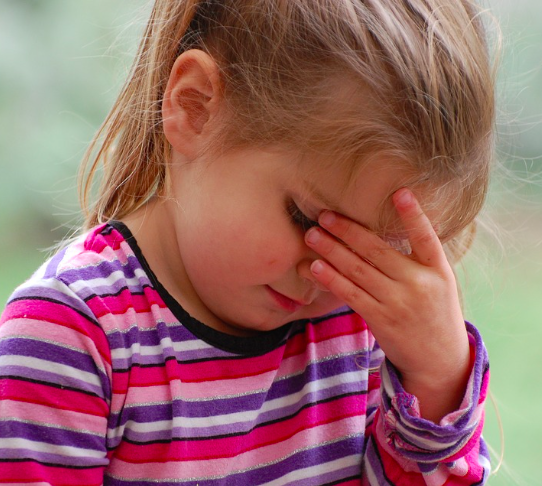New York Times Parenting: Are Essential Oils Safe For Kids?
By Teresa Carr
When Eva Sheie walked into her daughter’s new day care classroom in Austin, Tex., last December, the floral aroma emanating from an essential oil diffuser instantly piqued her nostrils.
Sheie, who is sensitive to fragrance, didn’t like the smell, but she also didn’t complain: “I don’t want to be that parent, you know?”
But after a few weeks, she noticed that her toddler and several other students had developed nagging coughs that lingered well into January. And when the teacher switched to an oil blend that was supposed to “disinfect” the air, Sheie said she felt “headachy and like I was going to throw up for an hour or longer” after dropping off her daughter each morning.
Finally, after a few days of feeling ill, Sheie convinced the day care to turn off the diffuser. “The relief was immediate,” Sheie said. Her symptoms went away, and her daughter quit coughing.
Dr. Justin Smith, M.D., a pediatrician at Cook Children’s Health Care System in Fort Worth, Tex., said that in recent years, more and more parents have been inquiring about whether inhaling, consuming or rubbing essential oils onto the skin can treat a variety of their children’s ailments, including cough, congestion, fever and more.
Little is known about how these oils might affect young, growing bodies, but there is some evidence that they can cause harm.
One trap parents may fall into is thinking that these oils are replacements for evidence-based treatments, according to Dr. Smith. He told me that the parents of one of his young patients had tried treating their child’s croup (a respiratory infection that causes difficulty breathing and a barking cough) with a variety of oils. Eventually, the illness progressed so much that they needed to take the child to the emergency room.
“While the essential oils didn’t hurt the child,” Dr. Smith said, “the delay in care allowed the condition to get worse.”
Because there’s no solid evidence on the efficacy and safety of essential oils, major medical organizations such as the American Academy of Pediatrics and the American Academy of Family Physicians have not issued recommendations for using them with children.
If you still want to use the oils on or around kids, discuss it with your child’s doctor first, advised Dr. Anna Esparham, M.D., a board-certified pediatrician at Children’s Mercy Hospital in Kansas City, Kan., who has been trained in aromatherapy. And heed the following advice.
-
In general, diffusing essential oils into the air is safer than using them on the skin. (But even then, it can be irritating to some. Never diffuse them in classrooms or in public spaces.)
-
Don’t diffuse essential oils around infants under 6 months old. For older babies and children, it’s reasonably safe to diffuse certain oils such as cedarwood, ginger or sweet orange for up to an hour while monitoring your child, said Dr. Esparham.
-
You can apply certain oils — such as chamomile, cypress and helichrysum — to the skin of children 3 and up, Dr. Esparham said, but you should dilute them first (using about 3 to 6 drops of oil per 1 ounce of a “carrier oil,” such as jojoba or almond oil). Or, use a product specifically formulated for children.
-
Even diluted oils can cause irritation, so always do a patch test: Rub the oil on a small area of skin and wait 24 hours to see if there’s any redness, swelling or rash. (If there is irritation, stop using the oil immediately.)
-
Always keep oils away from the eyes, nose and mouth. And do not apply essential oils to children with sensitive skin, eczema or other chronic skin conditions, as they can be irritating, Dr. Stukus said.
-
Avoid applying citrus oils — such as those made from grapefruit, lemon or orange — to the skin, as they can react with ultraviolet radiation from the sun to cause burns, rashes or skin discoloration.
-
Never add undiluted essential oils to bath water. Oil and water don’t mix, so undiluted drops could irritate the skin. You can, however, add diluted drops, said Dr. Esparham. Use 2 drops of oil to 1 ounce of liquid Castile soap or a carrier oil.
-
Don’t flavor food or drink with essential oils, even if they are labeled “food safe.” They can be harmful if swallowed, and could damage the lining of the mouth or digestive tract.
-
Avoid using synthetic oils, Dr. Esparham said, because the chemicals are more likely to cause side effects such as nausea or headache, skin irritation or breathing problems than more “pure” oils. Nonsynthetic oils are typically more expensive than synthetics — around $12 to $25 per vial. You can spot them by looking for their Latin names on their labels, like “100 percent Cedrus atlantica oil” for cedar oil, she said.
-
Store essential oils in a cool, dry place away from direct sunlight and out of the reach of children. Dr. Esparham advised keeping oils for no longer than a year as rancid oils are more likely to irritate the skin or trigger allergic reactions.
Read the full story via The New York Times Parenting
Learn more about the Headache Treatment Center at Children's Mercy

